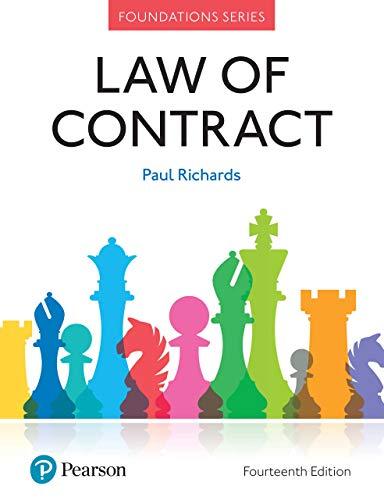Question
Jean-Claude Kaufmann owned approximately 37 acres of real property located in the town of Stephentown, Rensselaer County, New York. The property is located in a
Jean-Claude Kaufmann owned approximately 37 acres of real property located in the town of Stephentown, Rensselaer County, New York. The property is located in a wooded area and is improved with a 19th-century farmhouse. Kaufmann and his spouse, Christine Cacace, reside in New York City and use the property as a weekend or vacation home. Kaufmann listed the property for sale for $350,000.
Richard Alba and his spouse (Albas) looked at the property and offered Kaufmann the asking price. The parties executed a contract for sale, and the Albas paid a deposit, obtained a mortgage commitment, and procured a satisfactory home inspection and title insurance. A date for closing the transaction was set. Prior to closing, Cacace sent the Albas an email, indicating that she and Kaufmann had "a change of heart" and no longer wished to go forward with the sale. Albas sent a reply email, stating their intent to go forward with the scheduled closing. When Kaufmann refused to close, the Albas sued, seeking specific performance, and moved for summary judgment. The supreme court of New York denied the motion. The Albas appealed.
Issue Is an order of specific performance of the real estate contract warranted in this case?
What is specific performance? Was it ethical for Kaufmann to try to back out of the contract? Why or why not. Was it ethical for the buyer to sue for specific performance when the seller had a "change of heart" and no longer wanted to sell? Why or why not?
Step by Step Solution
There are 3 Steps involved in it
Step: 1

Get Instant Access to Expert-Tailored Solutions
See step-by-step solutions with expert insights and AI powered tools for academic success
Step: 2

Step: 3

Ace Your Homework with AI
Get the answers you need in no time with our AI-driven, step-by-step assistance
Get Started


